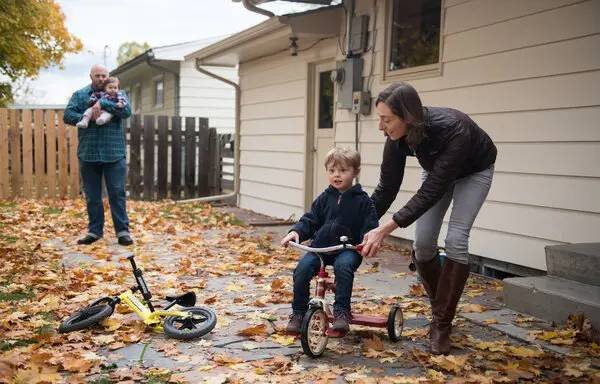Parenting is a beautiful journey filled with love, joy, and countless rewards. However, it can also be challenging and overwhelming at times. As parents, we want the best for our children and strive to provide them with a nurturing and supportive environment. In this pursuit, we often fall into what is known as the “parenting trap.”
The Definition of the Parenting Trap
The parenting trap refers to the cycle of behaviors and patterns that parents can fall into, unintentionally hindering their ability to raise happy and well-adjusted children. It is characterized by feelings of overwhelm, guilt, and the constant struggle to find balance.
The Causes of the Parenting Trap
There are several factors that contribute to the parenting trap:
- Societal Pressure: In today’s society, there is an immense pressure on parents to be perfect. They are bombarded with conflicting advice, societal expectations, and the fear of judgment. This pressure can lead to feelings of inadequacy and the need to constantly strive for perfection.
- Self-Sacrifice: Many parents believe that they must sacrifice their own needs and desires for the sake of their children. While selflessness is an admirable quality, neglecting self-care can lead to burnout and resentment.
- Comparison: With the rise of social media, parents are constantly exposed to the highlight reels of other families. This comparison can create unrealistic expectations and a sense of failure when their own experiences don’t measure up.
- Information Overload: The abundance of parenting advice and information can be overwhelming. Parents often find themselves drowning in a sea of conflicting opinions, unsure of which approach is best for their child.
The Advantages of the Parenting Trap
While the term “trap” may have negative connotations, the parenting trap is not entirely detrimental. In fact, it has several advantages that can positively impact both parents and children.
1. Deep Connection with Your Child
- By falling into the parenting trap, you become deeply involved in your child’s life.
- You develop a strong bond and connection, which helps in understanding their needs, desires, and fears.
- This connection allows you to be more empathetic and responsive to your child’s emotional and physical well-being.
2. Enhanced Parenting Skills
- The parenting trap pushes you to constantly learn and evolve as a parent.
- You become more knowledgeable about child development, behavior management, and effective communication.
- As you navigate the challenges of parenting, you acquire valuable skills that can benefit both you and your child in the long run.
3. Stronger Family Bonds
- When you fall into the parenting trap, you prioritize spending quality time with your child and family.
- You create lasting memories through shared experiences, such as family outings, game nights, or vacations.
- These shared moments strengthen the bonds within the family, fostering a sense of belonging and support.

The Disadvantages of the Parenting Trap
While the parenting trap has its advantages, it’s important to recognize its potential downsides to ensure a balanced and healthy approach to parenting.
1. Over-Parenting
- One of the pitfalls of the parenting trap is the tendency to over-parent.
- Over-parenting refers to excessive control and involvement in every aspect of your child’s life.
- This can lead to a lack of independence and resilience in children, as they become reliant on their parents for decision-making and problem-solving.
2. Burnout and Exhaustion
- Falling into the parenting trap often means putting your own needs on the backburner.
- You may find yourself constantly juggling multiple responsibilities and neglecting self-care.
- This can lead to burnout and exhaustion, impacting your overall well-being and ability to be an effective parent.
3. Unrealistic Expectations
- The parenting trap can create unrealistic expectations for both parents and children.
- You may feel pressured to meet societal standards of what a “perfect” parent looks like.
- Similarly, your child may feel overwhelmed by the pressure to excel academically, socially, or in extracurricular activities.
You May Also Like
- The Challenges and Benefits of Single Parenting and Co-Parenting
- What is intentional parenting, Importance and examples
- What are some reasons why parents might use fear as a form of discipline?
- How to Parenting Teens With Love And Logic
- 13 years old and above parenting issues with single child
- Self Care Tips for Foster Parents : Embrace Wellness
- Homeschool Tips for Working Parents
Striking a Balance
Now that we understand the advantages and disadvantages of the parenting trap, it is essential to find a balance that promotes healthy parenting.
1. Prioritize Self-Care
Remember that taking care of yourself is not selfish; it is necessary for your well-being and your ability to be a present and attentive parent.
- Set aside time for activities that rejuvenate you, whether it’s exercising, reading, or pursuing a hobby.
- Delegate tasks and ask for support from your partner, family, or friends.
- Recognize and address any feelings of guilt that may arise when prioritizing your own needs.
2. Foster Independence
Encouraging independence in your child is crucial for their growth and development.
- Allow them to make age-appropriate decisions and learn from their mistakes.
- Teach them problem-solving skills and the importance of responsibility.
- Provide a supportive environment where they feel comfortable exploring their interests and passions.
3. Embrace Imperfection
Perfection is an unrealistic expectation that can lead to unnecessary stress and pressure.
- Accept that parenting is a journey filled with ups and downs.
- Focus on your efforts and the love you provide rather than striving for perfection.
- Practice self-compassion and forgive yourself for any perceived shortcomings.
Video for Parenting Trap
Conclusion
The parenting trap is a common phenomenon that can have both advantages and disadvantages. By being aware of its potential pitfalls, we can strive for a balanced approach to parenting that prioritizes our well-being and fosters our child’s growth and independence. Remember, no parent is perfect, and it is through our imperfections that we learn and grow together.
People Also Ask
1. What are the 4 parenting styles?
There are four main parenting styles:
- Authoritarian: High demandingness, low responsiveness. Strict rules, little explanation, and obedience is expected.
- Authoritative: High demandingness, high responsiveness. Clear expectations with explanations, open communication, and encouragement of independence.
- Permissive: Low demandingness, high responsiveness. Few rules, allows freedom, and focuses on nurturing.
- Uninvolved (Neglectful): Low demandingness, low responsiveness. Inattentive to child’s needs and provides little guidance.
2. What is parent trapping?
In a general sense, “parent trapping” can refer to a situation where children manipulate their parents to get what they want, often by trying to get them back together.
3. What if I don’t want my child anymore?
This is a difficult situation. If you’re struggling with parenting, there are resources available to help. Here are some options:
- Talk to a trusted friend, family member, or therapist.
- Consider seeking professional help or joining a support group for parents.
- Explore resources for adoption or fostering if you feel you cannot care for your child.
4. What is a parent trap definition in psychology?
There isn’t a specific psychological term “parent trap.” It likely refers to a child’s manipulative behavior to influence their parents’ relationship.
5. Is the parent trap funny?
“The Parent Trap” is a popular movie title referring to a comedic story about twins scheming to reunite their divorced parents. Whether you find it funny depends on personal taste.
6. When was the word parenting first used?
The exact date is unclear, but the word “parenting” likely emerged in the late 1800s or early 1900s as the concept of child-rearing evolved.


